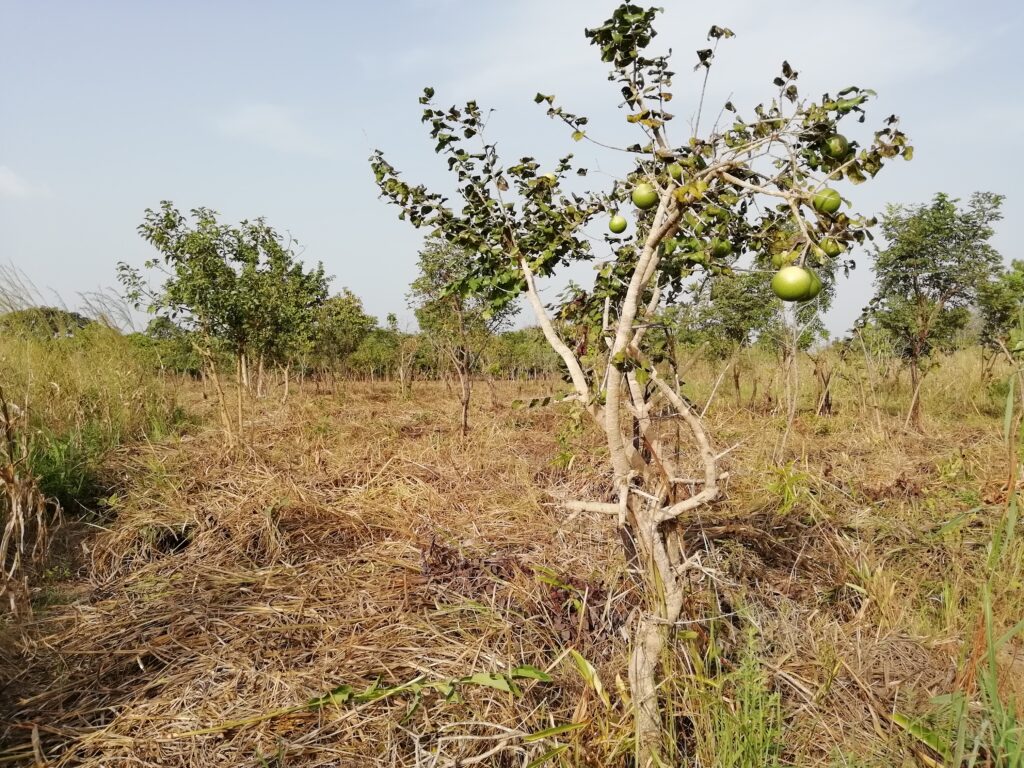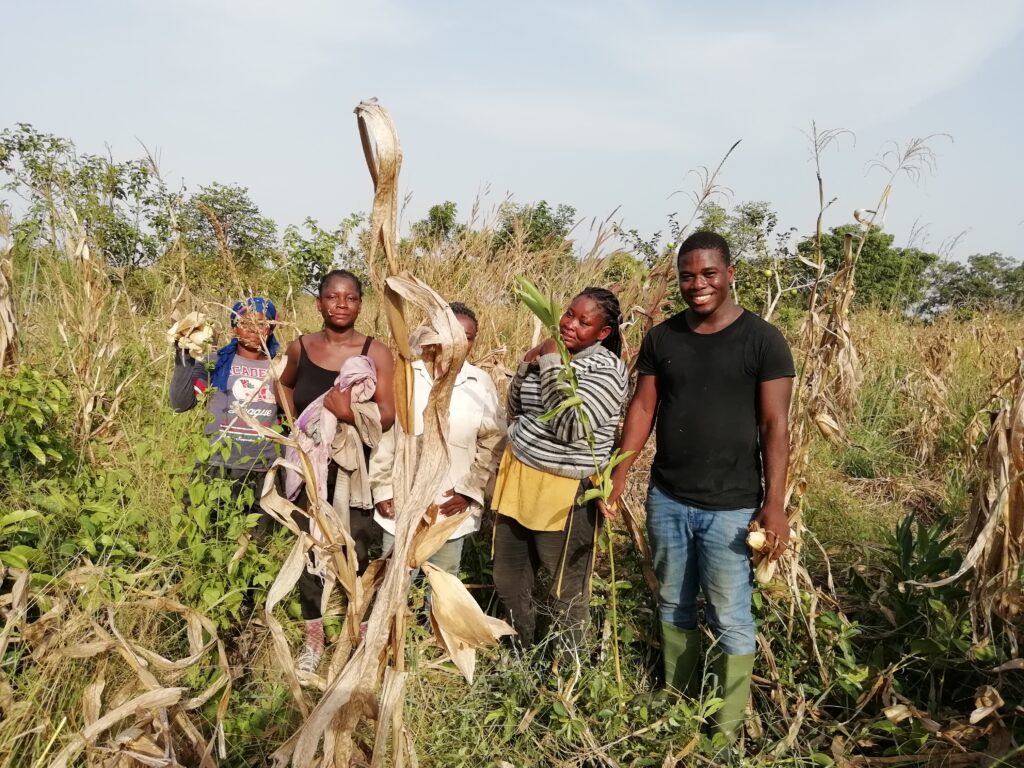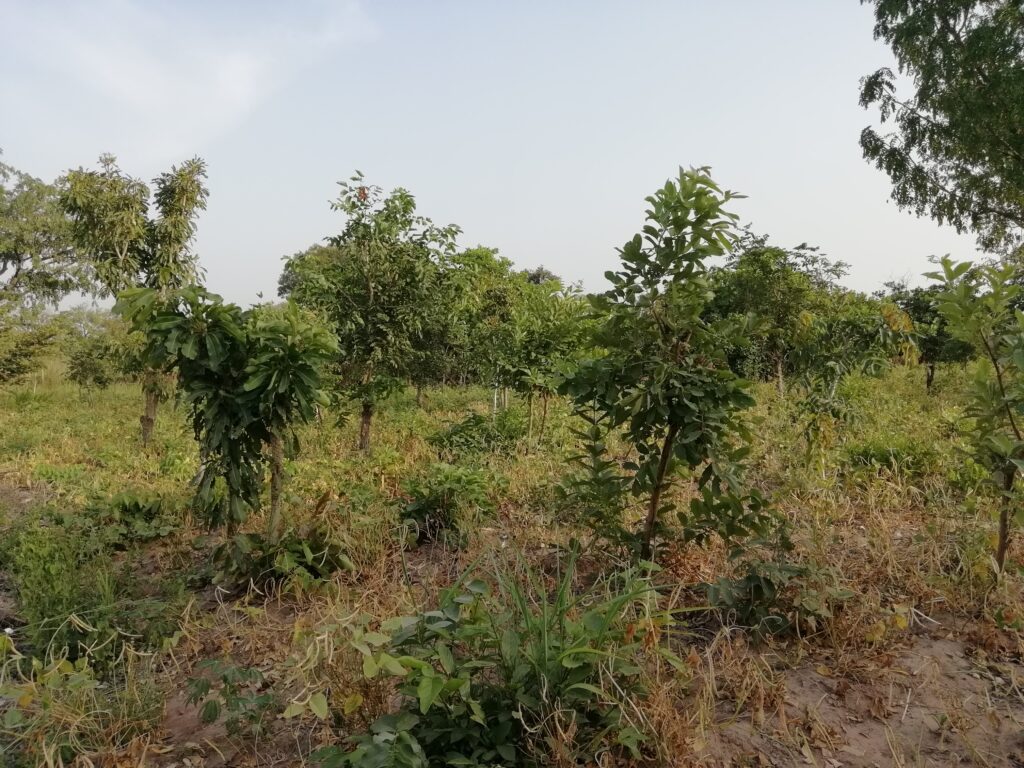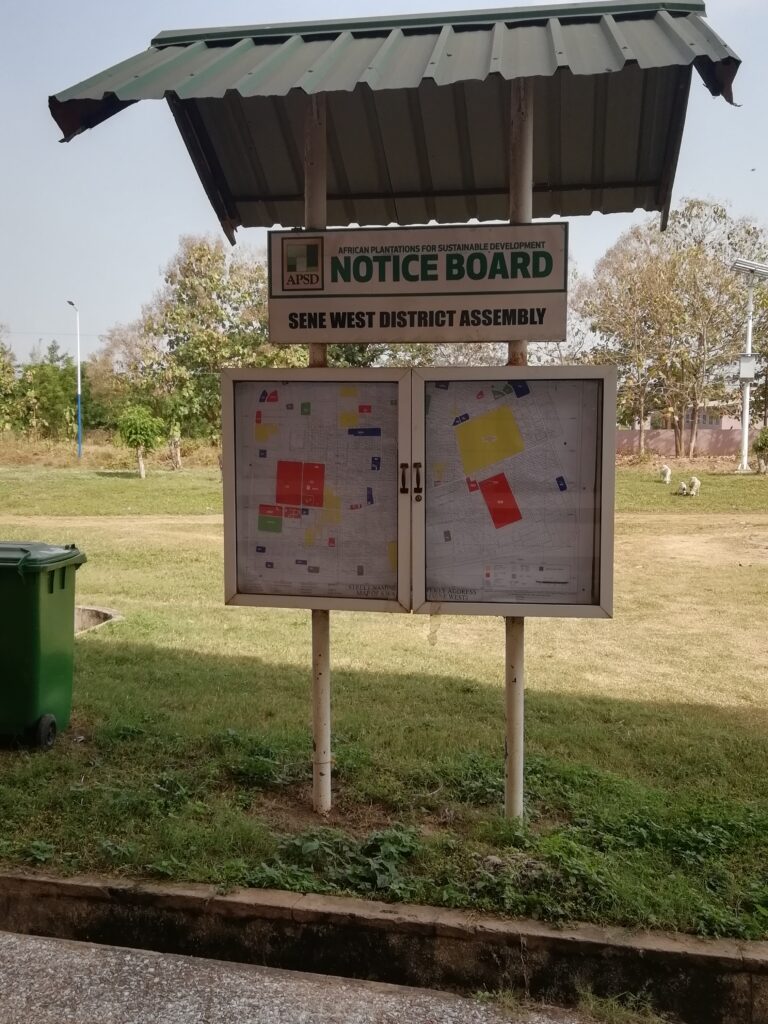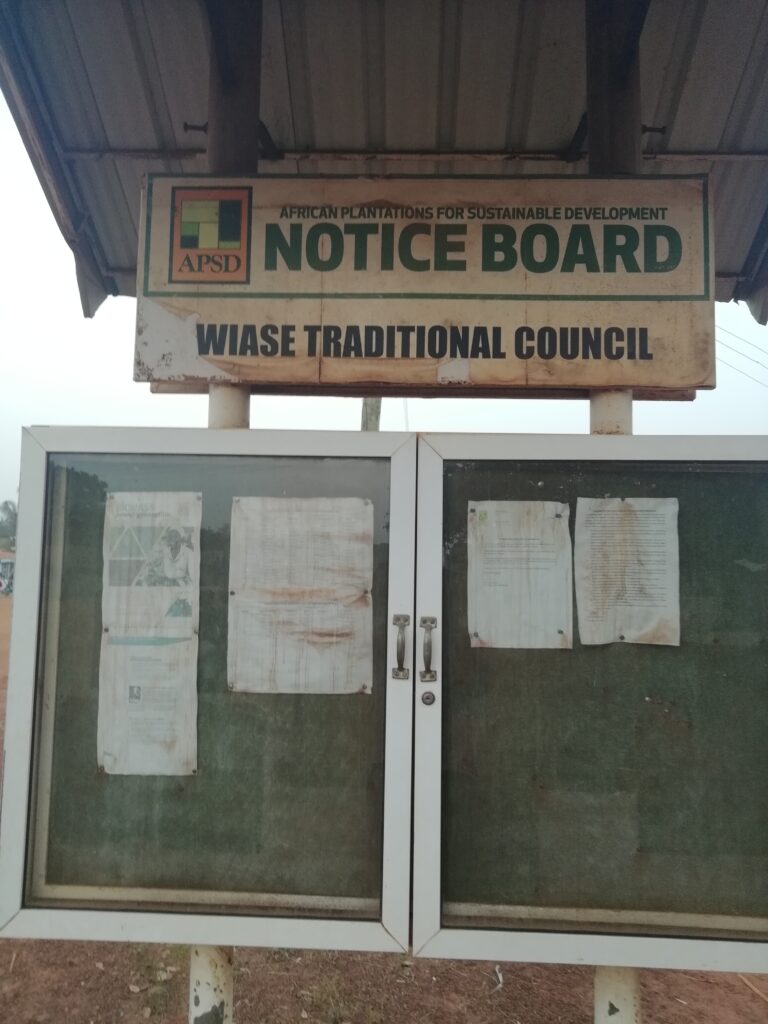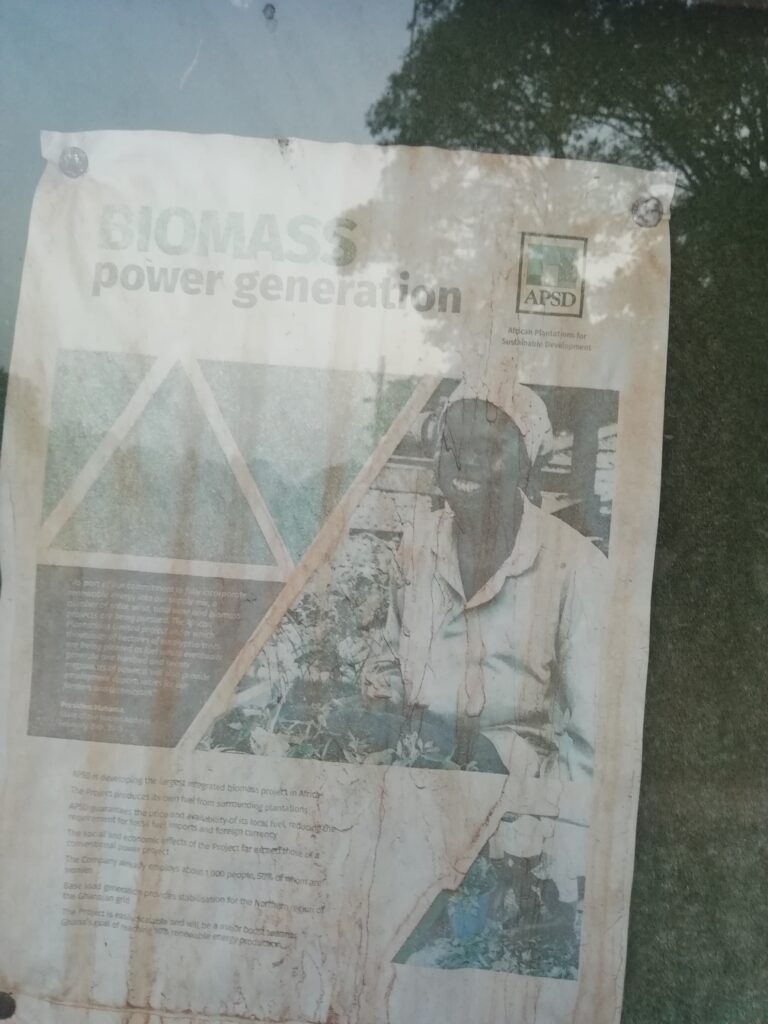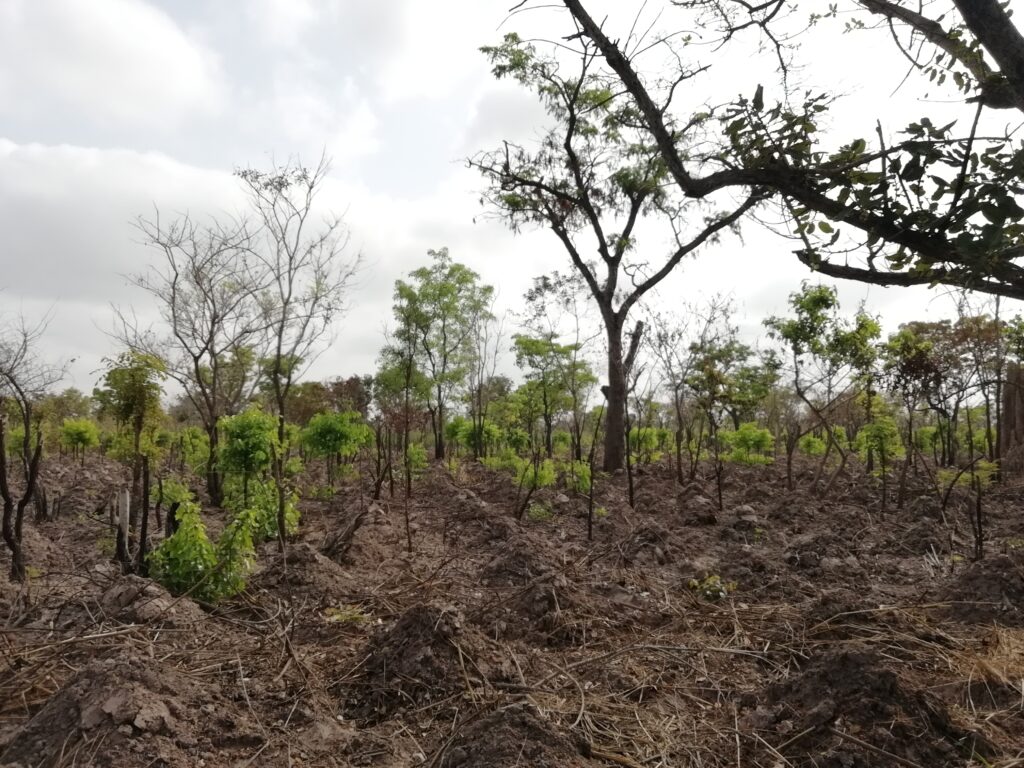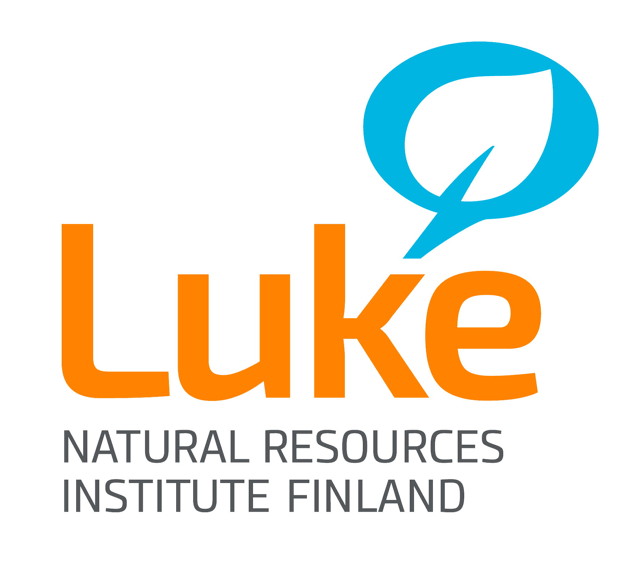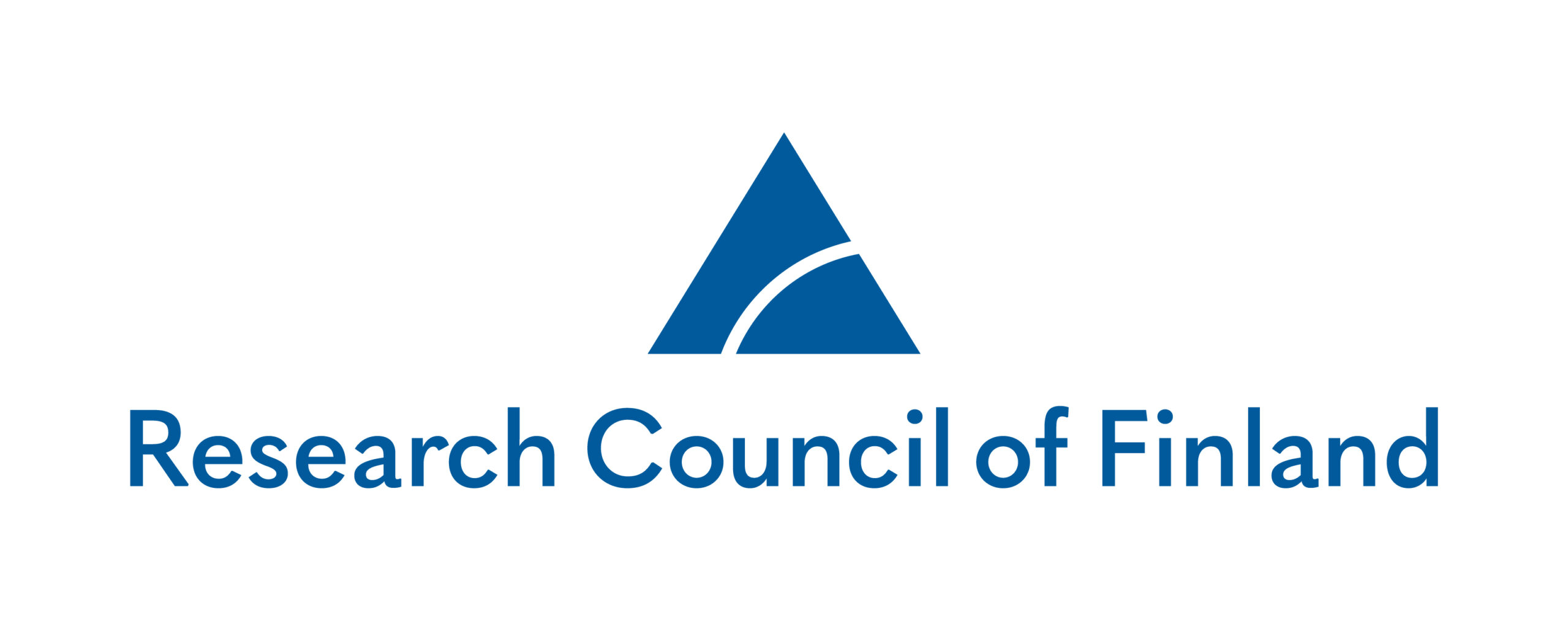Case Study Descriptions & Outputs
Postdoctoral Researcher Eric Mensah Kumeh
In Ghana, there were two case undertaken. Please click on each title below to see further details of each of the cases.
Case study 1: Justice and the Bioeconomy: A case of the African Plantations for Sustainable Development (APSD) in Bono East Region, Ghana.
We focus on large-scale investments in biomass-for-bioenergy, as a bioeconomy intervention, and how they interact and influence the pre-existing land tenure and social relations. Focusing on the African Plantations for Sustainable Development (APSD), this case study questions how the bioeconomy is translated in rural Ghana. The APSD emerged in Ghana around 2008, coinciding with the new rush for Africa, whereby investors sought safer havens for accumulation following the global financial crises at the time.
We explored the 22,863-ha lease acquired by APSD on the Wiase and Atebubu stool lands in Ghana’s Bono East region. This forms part of a broader lease of 82,000 ha of stool lands secured by the company between 2008 and 2012 to establish plantation, generating raw material to power its bioeconomy project. An ethnographic fieldwork of four months was conducted. This involved field observations, informal discussions and interviews with over 56 respondents across nine communities, in the villages within and around the companies lease area, between Atebubu and Wiase. Institutional interviews were carried out with the Environmental Protection Agency, the Ministry of Food and Agriculture, the Forestry Commission, the Sene West District Assembly, the Atebubu-Amantin Municipal Assembly, and the APSD staff.
The results will be published in: (i) “Decentering bioeconomy: green extractivism, fractured social relations, and forsaken responsibility in rural Ghana” (Under review in ‘World Development’ journal); and (ii) “Enclosing land, disrupting lives: How a botched bioenergy initiative transforms access and land-use choices in rural Ghana” (Under review at ‘Journal of Rural Studies’.
Case study 2: Sustainable, deforestation-free cocoa production policy and praxis
Cocoa production contributes directly to the livelihoods of over 600,000 households in Ghana. Despite this positive contribution, concerns about growing poverty and food insecurity in cocoa despite multiple international, regional and local initiatives to engender sustainability in the cocoa sector, persist.
In this context, we examined (i) the European Union’s policy aimed at halting deforestation and the blocs updated bioeconomy strategy and (ii) the world’s first emissions reduction program, the Ghana Cocoa Forest REDD+ Programme (GCFRP), led by Ghana’s Climate Change Unit, Forestry Commission.
We conducted: (i) Key informant interviews (n = 21) with cocoa farmers, public official and cocoa companies and (ii) Focus groups (n=13) in Ghana’s Juabeso/Bia landscape with different farmers and actors embedded in different levels of Ghana Hotspot Intervention Area governance mechanism with the GCFRP.
The results of this study are published in the paper (i) “Is the EU shirking responsibility for its deforestation footprint in tropical countries?” and (ii) “Ghana’s landscape approach to REDD+: Is it decentralizing or recentralizing power, for what and for whom? (Under review in Geoforum)


